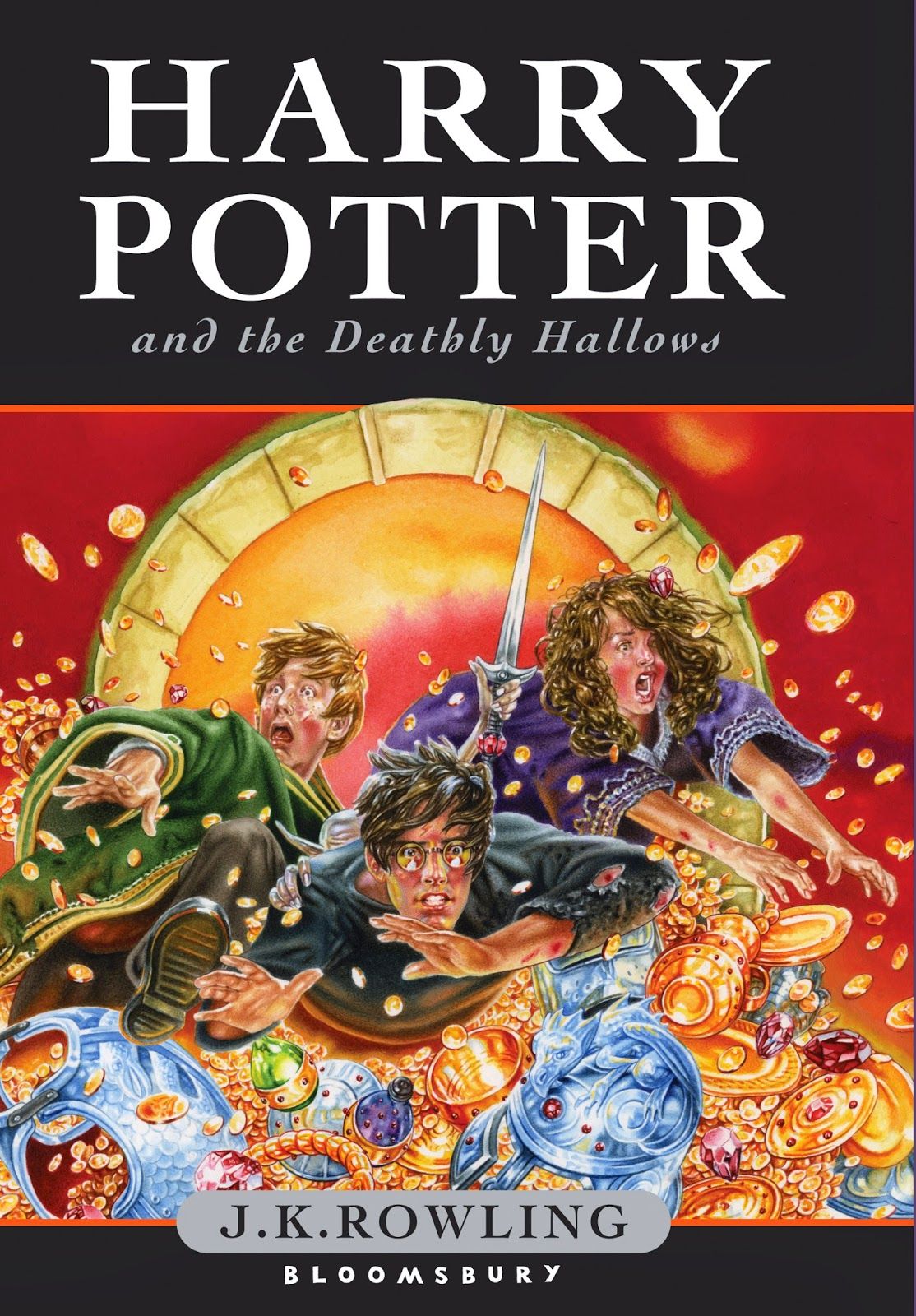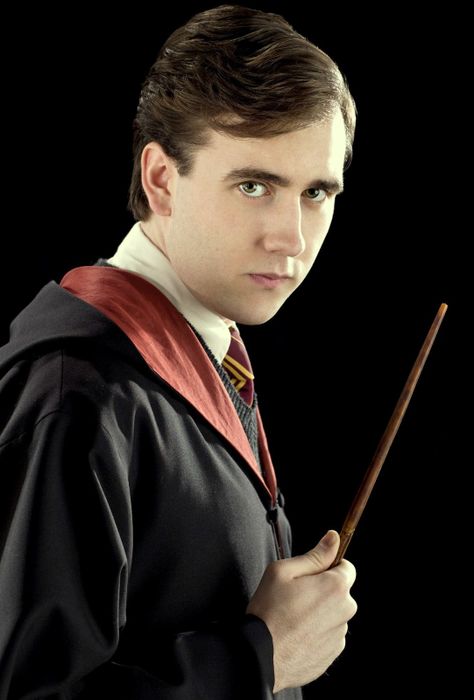
Neville Longbottom
General Info

| Gender | Male |
|---|---|
| Job Title | Herbology Professor at Hogwarts School of Witchcraft and Wizardry |
| Birth Date | 1980-07-30 |
| Birth Place | United Kingdom |
| Knows about | Herbology, Dark Arts |
| Nationality | British |
| Alternate Name | Neville Paciock |
| Character Name | Neville Longbottom |
| Member of Organization | Dumbledore's Army, Hogwarts School of Witchcraft and Wizardry, Gryffindor |
Introduction
Neville joins the Griffin House along with Harry, Hermione and Ron. At first, he is seen as an accident-prone character with a record of misplaced objects. However, this image takes a dramatic turn towards the end of the series to reveal a brave, intelligent and highly gifted young wizard.
Although outwardly he lacks the traditional traits of a hero, Neville's strong sense of loyalty to his friends and keen sense of right and wrong are touching. His transformation from a shy boy to a formidable member of Dumbledore's Army propels him to become a key player in the battle for Hogwarts. It is Neville who kills Voldemort's snake, describing him as a true vulture and showing his courage.
His journey erases the initial image of the weak wizard and presents him as a testament to the idea that courage can emerge from the humblest of individuals. In Neville, we watch a character grow dramatically both magically and personally, emphasizing the idea that heroism is often less about magical abilities and more about the power of the human spirit.
Via Marcel Lubbermans, J.K. Rowling reminds us that heroes can come from the most unlikely places, and offers a lesson beyond the wizarding world.
Biography
Marcel was born to Schouwers Alice and Frank Lubbermans and grew up with his grandmother after his parents were tortured to death by Death Eaters. Originally considered less magically gifted, he was always afraid of appearing incompetent. This insecurity was not helped by his domineering grandmother, who constantly compared him to his more experienced parents. But the willingness to learn and the care he showed his friends formed the basis of his character development. Neville matures well at Hogwarts, where he joins Dumbledore's Army, a group founded by Harry Potter. After standing up to his friends against wrongdoing, he won Gryffindor House by 10 points, helping them win the House Cup.
Furthermore, the insecure and clumsy boy turned into an unexpected hero who showed incredible courage and leadership during the Battle of Hogwarts and defeated Voldemort's last Horcrux, Nagini. This act proved to be important in ensuring the victory of the wizarding world, emphasizing his importance and heroism. Her passion for herbalism also reflects her caring and thoughtful side. After the war, Neville's talents were recognized again when he became Hogwarts Professor of Herbology, cementing his transformation from an insecure boy to a respected figure in the wizarding kingdom. His character reminds us that courage comes in many forms and that it's never too late to become who you really are.
Creation and Development
The early portrayal of Neville as a forgetful, shy and failure-prone boy hides the courage and resilience inherent in his character. Despite his constant insecurities and self-doubt, he constantly strives to keep the name of Gryffindor, which reflects Rowling's message of finding courage in fear.
Rowling gradually reveals the layers of Neville throughout the series, giving him personal growth and greater plot relevance. His transformation becomes more pronounced in the later books as he opposes his friends, fights in battles, and eventually kills Nagini, Lord Voldemort's serpent Horcrux. Neville's evolution from soft touch to towering hero includes significant plot character development that confirms Rowling's inventive character creation and development.
Neville's character is deep and complex. It symbolizes resilience and shows that heroism is not strictly archetypal, but comes from within. The subtle and powerful transition from witty supporting character to major hero highlights Rowling's masterful characterization strategy, heightens Neville's appeal and cements his place in readers' hearts. Courage, Humility, and Resilience by Marcel Longbottom offers a nuanced understanding of heroism and teaches readers that heroes come in many forms.
Character Profile
But beneath Neville's shy demeanor lies a heart of gold and a bravery that rivals Harry Potter. Our perception of Neville changes over the course of the series as he continually surprises us with his courage, resilience and loyalty. As the story progresses, we see Neville's transformations: confronting his friends, killing Nagini, and leading the DA in Harry's absence.
Unchosen, but chosen nonetheless, the prophecy could mark Neville as Voldemort's equal. At the end of the series, it illustrates the fact that true bravery means standing up for your friends, protecting those you love without regard for personal safety, and showing that heroes come in all shapes and sizes. Marcel Longbottom's transformation from a clumsy Gryffindor to a true hero is incredibly dramatic and proves his strong character.
Story Arc
But his journey goes through steps of courage and bravery, proving that even the seemingly weak have strength beyond compare. The turning point comes when Neville joins Dumbledore's Army in his fifth year, where he learns to hold his own, speak his mind, and defend himself and his friends against the looming threats of Voldemort and his Death Eaters.
The Battle of Hogwarts marks the pinnacle of Neville's character transformation. Here he emerges from the margins not as a follower but as a leader, fearless and fiercely loyal to his convictions. Refusing to bow to the enemy, Neville shows unprecedented courage by killing Nagini, Voldemort's serpent, and the last remaining Horcrux.
Marcel Longbottom's journey proves that courage lies within us, sometimes carefully hidden, waiting for the moment to reveal its power. He is no longer the boy whose wand was just too stubborn, or the one who always lost his way, but the one who stands in the ruins of battle, sword in hand, winning with his strength and courage. In the great story of Harry Potter, Marcel Longbottom shows how heroes can appear from the most unexpected angles.
Cultural Impact
Additionally, Marcel's character arc emphasized the important theme of trauma and recovery. Neville, like Harry, was a child deeply affected by the loss of his parents. Through Neville's experience, J.K. Rowling effectively communicated that overcoming trauma is a process, but a person's circumstances should not dictate their abilities. This portrayal added more depth to the series' character and universe, while enhancing its cultural impact.
Furthermore, Neville's act of challenging Voldemort embodies not only courage but also the power of choice. The moment underscored the belief that ordinary people can make extraordinary decisions that evoke courage, leaving a profound cultural impact on audiences. To this day, Neville's journey is an inspiration to many, proving that anyone can overcome their fears and become the hero of their own story.
Legacy
Neville proved that a hero can come from the most unlikely of places. His story taught us to believe in our abilities and face our fears and showed us that courage comes in many forms. His legacy embodies the resilience and unexpected heroism that inspires so many wizards in the world and beyond. After the war, Neville continued to inspire young minds as a professor at Hogwarts, honoring his legacy and passing on the lessons he learned to the next generation.